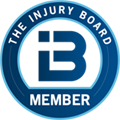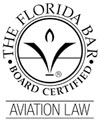General Questions
- WHAT IS A CONTINGENT FEE? In a case involving personal injuries or death, our fee is a percentage of any settlement or damage award we obtain for you, before deducting expenses. Our percentage is based on ethical guidelines set by the Florida Bar. We will advance all expenses, which you will repay to us only if we obtain money for you. If we do not obtain a settlement or damage award for you, you owe us nothing.
- I ALREADY HAVE AN ATTORNEY, BUT I’M NOT HAPPY. CAN YOU HELP ME? Most problems are probably due to lack of communication. Talk to your attorney and make sure you understand everything he or she is doing for you. If you would like a second opinion, tell your attorney, and let us know when you contact us that you are seeking a second opinion. If you are still unhappy with your attorney, it is our policy not to consider representation unless you have first terminated your relationship with your prior legal counsel.
- WHAT IS A STATUTE OF LIMITATIONS? This is the time limit within which you must file a lawsuit, or in some cases an administrative claim, or be forever barred from doing so. The statute of limitations is different for different types of legal problems. This is why it is very important for you to act immediately and without delay if you have a legal claim.
Automobile Accidents
- WHAT DOES “NO FAULT” MEAN? Florida’s no fault automobile insurance laws limit the liability, or legal responsibility, of the person who’s negligence caused the accident and injuries to other people. Under our no fault laws, if you are injured in an auto accident caused by someone else, you cannot recover certain money damages from the person at fault unless you can prove your injuries meet certain thresholds. If you believe you have been hurt in an accident, it is important to seek appropriate medical treatment without delay, not only to get well, but also to eliminate any doubt as to the cause of your injury should you have a claim against the person at fault.
- WHAT IS PIP? Personal Injury Protection is the insurance coverage you are required to purchase under our no fault law. If you are injured in an auto accident, PIP pays 80% of your medical bills and 60% of lost wages. There is also a PIP death benefit. If you have purchased PIP with a deductible, your medical bills and lost wages are your responsibility up to the deductible, before PIP benefits are available to you.
- WHAT IS LIABILITY INSURANCE? Liability insurance protects you against the claims of others if your negligence has caused an accident and injuries to others. Liability insurance helps protect your assets against these claims. Florida does not require the purchase of liability insurance. If you are injured by the negligence of someone who has no liability insurance, you may have no recourse unless you have purchased uninsured/underinsured motorist (UM) insurance.
- WHAT IS UM (UNINSURED or UNDERINSURED MOTORIST) INSURANCE? UM insurance coverage provides you compensation for injuries caused by someone else’s negligence, if the person who caused the accident has no liability insurance, or has liability insurance in an amount which is not sufficient to compensate you for your injuries. If you have purchased liability insurance, you must be offered the opportunity to purchase UM coverage of at least the same amount as your liability coverage.
- WHAT SHOULD I DO IF I AM IN AN ACCIDENT AND I AM CONTACTED BY AN INSURANCE ADJUSTER? If you are contacted by someone from your insurance company, you have a duty to cooperate. If you are contacted by an adjuster representing someone else’s insurance company, you have no obligation to speak to that adjuster before you have contacted your attorney. If you are involved in an accident and you intend to obtain legal representation, let the adjusters know your attorney will contact them, and avoid giving any statement before you have had the opportunity to speak to your attorney.
Aviation
- A LOVED ONE HAS BEEN INJURED OR KILLED IN AN AIRCRAFT ACCIDENT OUTSIDE FLORIDA. CAN YOU REPRESENT ME? Yes. We represent aircraft accident victims and their families, no matter where the accident may have occurred. Factors such as the location of the accident, the residence of the passenger, and the ultimate cause or causes of the accident will determine what law may apply to the case, who is responsible, and in what court must a lawsuit be filed in the event litigation is necessary.
- WHAT IS A NASA REPORT? The Aviation Safety Reporting Program is administered by a neutral agency, NASA, and the reporting form is often referred to as a NASA Report. If you are an FAA certificate holder and you have committed a violation of FAA regulations, if you have timely filed a NASA report and the violation does not fall into one of the exceptions to this program, the sanction imposed for the violation will be waived. Note that you will still have a violation on your record. FILING a report is not the same as USING the report in an enforcement action, and only one report can be USED every five years. The decision to USE or not to USE a report which has been filed should take into consideration the severity of the violation, the sanction sought by the FAA, and the possibility of negotiating a sanction which may be acceptable.
- WHAT IS A LETTER OF INVESTIGATION? If you are an FAA certificate holder, and if the FAA has reason to believe you have committed a violation of regulations and no emergency exists which would justify revoking your certificate immediately, you will receive a letter from the FAA inspector investigating you. The letter will suggest that you have 10 days to provide any relevant information. The nature of your response, if any, is an important decision which may affect the outcome of your case if an enforcement action is initiated against you.
- I HAVE RECEIVED AN EMERGENCY ORDER OF REVOCATION. CAN I CHALLENGE THE “EMERGENCY?” There is a very short window of time to challenge the emergency nature of the Order. An Emergency Order is effective when it is issued, and you cannot exercise the privileges of your FAA certificate unless you win the FAA case against you, and until all appeals are exhausted. If you challenge the “emergency” and win, you can exercise the privileges of your FAA certificate while you defend yourself against the FAA’s claims against you.
7ads6x98y




